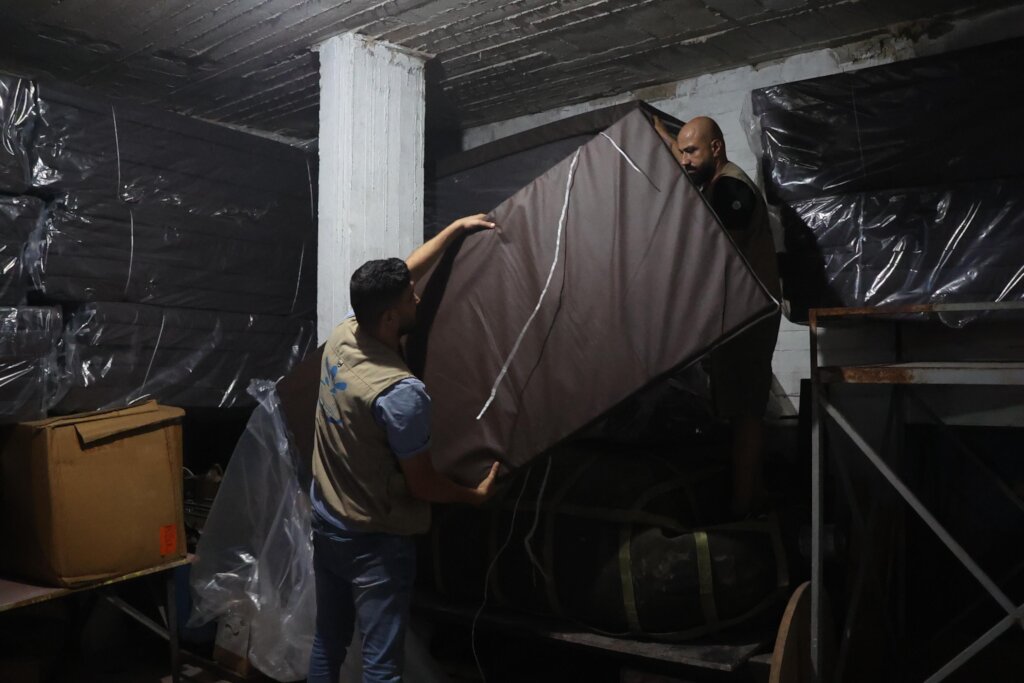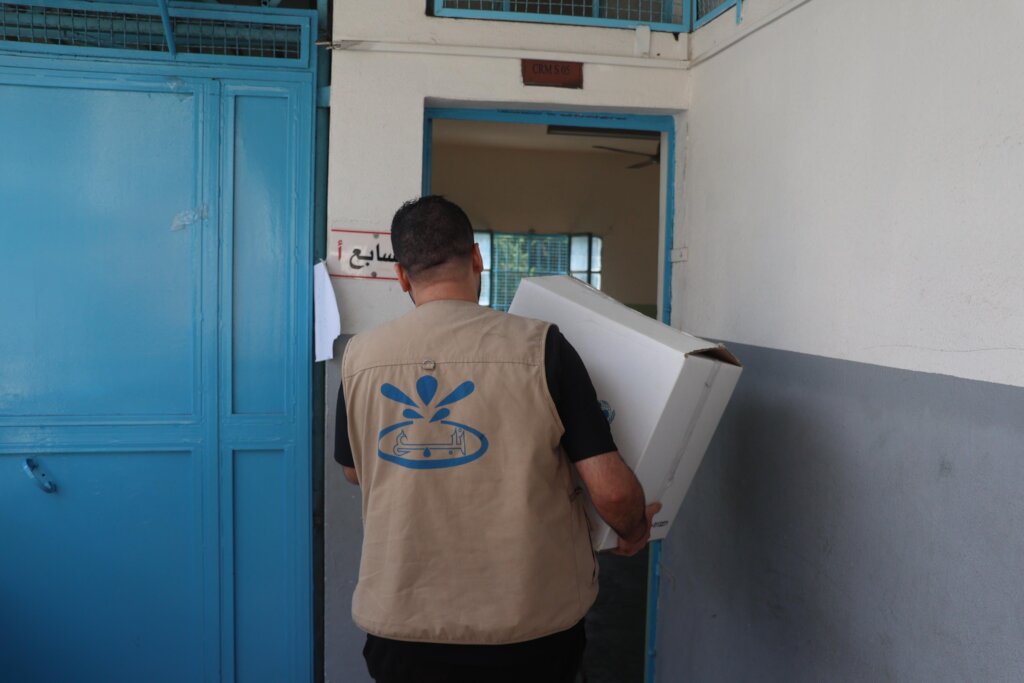By Hiba Hamzi | Program Coordinator
Introduction
On September 23, 2024, amid the escalation of the war, significant displacement from South Lebanon to various areas, including Saida, was reported due to the destructive and aggressive airstrikes, forcing families to seek refuge and stability. As a response to the emergency situation and for the purpose of assessing the needs of the displaced families in Saida, Nabaa's team has conducted a comprehensive assessment; identifying 1471 households, totaling 6216 individuals with an estimated total of 2,440 households comprising 10,318 individuals.
Out of 1471 displaced households identified by Nabaa’s team in Saida, 1092 (74%) are currently hosted by their relatives or friends, 214 (15%) are renting houses, and 165 (11%) are residing in collective shelter, which reflect the differences in the economic conditions of the displaced families.
The 1471 households represent diverse nationalities, including 995 (65%) Lebanese, 268 (19%) Palestinian refugees, 21 (1%) Palestinian Syrian refugees, and 223 (15%) Syrian refugees. The demographic breakdown of individuals presents1268 female children, 1332 male children, 1649 men, 1967 women. Among the identified 1471 households, 253 female-headed households. Indeed, the assessment manifests the vulnerability of certain groups with 505 elderly individuals, 103 people with disabilities, 993 individuals with chronic illnesses, and 106 pregnant or lactating women.
The needs assessment conducted by Nabaa's team indicates a pressing demand for essential resources among the displaced households. The findings show that 1,375 households (93%) require food assistance, highlighting the critical need for sustenance in the wake of displacement. Furthermore, 1,264 households (86%) indicated a need for mattresses, underscoring the lack of adequate sleeping arrangements for families living in temporary housing situations. Additionally, 881 households (60%) expressed a need for hygiene supplies, indicating a critical gap in basic health and sanitation provisions.
Main Achievements;
- Providing 400 children aged 4 to 12 years in the IDPs shelter with a friendly environment that ensures their health, education and psycho-social development. Knowing that, 50 out of them will be enrolled in KG, while the 350 children aged 6 years are referred and follow up is taking place in their UNRWA schools with the basic literacy and numeracy program.
- 500 parents and caregivers motivated to be engaged in their children's learning and well-being
- 393 (184 M,209F) children between the ages are provided with clothing kits
- Providing educational intervention in Ein el Helwe and Rashidieh and track the academic performance of the children
- Established a referral complaint mechanism group consisting of refugees committee in Ein El Helweh and Rashydieh, Nabaa psychologist, community worker and area supervisor. This committee will not be a specialized one with regards to protection and case management, as its main role is to be able to refer the cases whom are in need for such specialized intervention with the concern NGOs or INGOs in their areas.
- Raising awareness among 500 parents about the main topics related to their children (How to communicate with the children in difficult circumstances, promoting self - esteem, self - resilience, the importance of education for the children)
Case Study;
Age: 5 years old
KG students
Nationality: PRL
Moreover, the teacher has done several individual plans to improve his educational performance, and the social worker has done several home visits to follow up with him as well as merge his caregivers with different awareness sessions such as how to stay clean, how to deal with children, how to take care of children, and different topics. So on mid-year, we observed improvements in his educational performance, behaviour, being clean, movement and speech.
Age: M is 6 years old and M is 9years
Grade 1 student
Nationality: PRL
The social worker did a pre-assessment to determine their level of education. She noticed that there was no educational knowledge (they could not hold the pencil correctly, define letters, numbers, shapes, etc.; they didn’t know anything), so we put together an action plan and prepared extra activities to help them continue their level of education and extra activities for previous academic lessons. Moreover, after working with children, the teachers observed some psychological symptoms (anxiety, fear, and pee reflex), so the teacher referred them to a Nabaa psychologist. She observed that the divorce and the war affected them psychologically, so she gave awareness sessions to grandpa to learn how to deal with children and follow up on the children’s behaviour, as well as individual sessions that were done with psychologists and children. Whereas on the educational performance, the teacher observed that children were ambitious and never hesitated to do their homework or to interact with their teachers.
After a regular psychosocial support, and the provision of their basic needs and their participation in the recreational activities, the psychologist observed an improvement in their psychosocial behaviour of children.
Links:
By Hiba Hamzi | Program Coordinator
By Hiba Hamzi | Program Coordinator
Project reports on GlobalGiving are posted directly to globalgiving.org by Project Leaders as they are completed, generally every 3-4 months. To protect the integrity of these documents, GlobalGiving does not alter them; therefore you may find some language or formatting issues.
If you donate to this project or have donated to this project, you can receive an email when this project posts a report. You can also subscribe for reports without donating.
Support this important cause by creating a personalized fundraising page.
Start a Fundraiser
